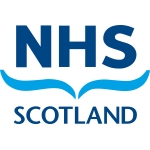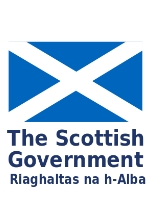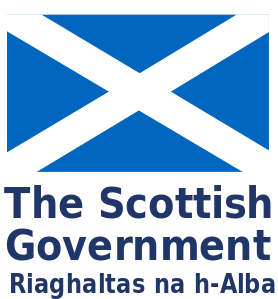This means that from 1 April 2010 all existing patients registered with a dentist under a continuing care and capitation arrangement and all new patients registered with a dentist under a continuing care and capitation arrangement will be registered for life (although dentists will continue to be able, if they choose, to take the necessary steps to deregister any patients that they no longer wish to treat under NHS arrangements). Registration arrangements will no longer lapse after a set period. A registration arrangement will, however, come to an end, and continuing care or capitation payments cease, where Practitioner Services have determined that a patient has died, moved out of the country or registered with another dentist in Scotland.
Download a copy
The Scottish Dental Practice Board was constituted on 1 April 1989, previously, called the Scottish Dental Estimates Board.On 1 April 1993 the Board’s remit became clearly focused on strategic policy issues .
The Board remains statutorily responsible for the fees (but not allowances) authorised to dentists by Practitioner Services.
Visit the Scottish Dental Practice Board Website
The Scottish Dental Reference Service (SDRS) is made up of a small team of independent dentists who help to monitor the standard and quality of NHS dental treatment. The Scottish Dental Reference Service (SDRS) is part of Practitioner Services.
Visit the SDRS webpage
Practitioner services is part of NHS National Services Scotland (NSS) . It provides patient focused services such as the transfer of medical records between General Practitioner (GP) practices, assisting patients to access GP and dental practices, as well as assisting practitioners to maintain accurate and up-to-date patient registers. We also have a Clinical Governance role with regard to dental services to make sure services are delivered to high professional standards.
Visit the Dental page of Practitioner Services
Health Facilities Scotland (HFS) provides NHSScotland with effective technical guidance, support and advice on healthcare estates and facilities. HFS helps NHS Boards with their capital developments.
Visit the HFS website
Health Facilities Scotland is part of NSS
This on-line learning resource from NES is designed for any professional who is working in the health care system at the primary care level (eg General Practitioner; Allied Health Professionals Dentists, Opticians, Public Health Nurses; District Nurses; Practice Nurses; and Dental nurses).
Visit the on-line resource
The legislation and mechanisms to safeguard children at risk in Scotland are slightly different from England.
In each section where there is variance we have made short notes that highlight the differences.
All dental professionals have a duty to keep their skills and knowledge up to date. CPD for dentists and DCPs is defined in law as activity which contributes to their professional development and is relevant to their practice or intended practice.
Guidance on CPD is available from the General Dental Council (GDC)
Visit the CPD page of the GDC website
Clinical Audit and Significant Event Analysis (SEA) are recognised as important elements of clinical governance which contribute to patient safety in dental primary care. In order to maintain a high standard of patient care it is important to continually review performance and strive to improve. Clinical audit has been a requirement for dentists under the NHS Terms of Service since 2001.
The aim of this site is to provide access for practitioners to the information needed in order to begin, or continue, to use various types of clinical audit activity, such as clinical audit (CA) or significant event analysis (SEA) so as to make improvements to their clinical practice
Visit the NES Clinical Audit and SEA site
Natural rubber latex (NRL) is found in many products used in health and social care. And has been extensively used in the manufacture of medical gloves (non-sterile examination gloves, surgical gloves) and a range of medical devices. As the use of such products has increased, particularly of single-use latex gloves in infection control, NRL allergy and sensitisation has been identified as a problem.
This webpage for the Health and Safety Executive provides background information and links to guidance documents and a range of other resources.
Visit webpage

This document provides summary guidance of procedures and arrangements for disposal of dental service waste
Dental services in NHS Boards, where applicable, can now use the healthcare (clinical) waste service provided by the NHS Board for the uplift and disposal of all the dental healthcare wastes arising.
Download document
Additional Information on waste management can be found on the SDCEP – Practice Support Manual website in the Health and Safety- general section ( password required).

Latest changes to the SDR.
 Summary
Summary
1. The attached letter clarifies the position for dentists regarding the new arrangements for clinical audit.
Action
2. NHS Boards are asked to urgently issue the attached letter to all dentists on their dental lists.

Latest changes to the SDR which come into force on the 1st November 2013
 This revision includes the following main changes:
This revision includes the following main changes:
- The Protocol has been revised to detail the Level 1–4 checks being undertaken across each of the payment categories (Capitation & Continuing Care; Items of Service; Allowances).
- A section on Retention of Evidence has been added.
- The section on Capitation & Continuing Care has been augmented with an enhancement of the existing checking processes for patient registrations – principally the following up of the 5% of registrations which currently do not match to CHI.
- An appendix detailing the processes applied for the Inspection of Patients by the Scottish Dental Reference Service has been added.

This letter (PCA2012(D)06) advises NHS Boards and Practitioner Services of the introduction of the recording, capturing and processing of tooth specific payment data with effect from 1 April 2013.
Child protection and the dental team is an introduction to safeguarding children in dental practice. It consists of a handbook and equivalent website.
Much of the content of the resource is applicable to dental professionals working throughout the United Kingdom. However, policy and procedures are stated for England. Those working in Wales, Scotland and Northern Ireland should be aware that differences exist and are advised to use this resource in conjunction with locally available guidance.
Additional information for Scotland
First published in 2006 it was commissioned and funded by the Department of Health.
Go to website



 Summary
Summary